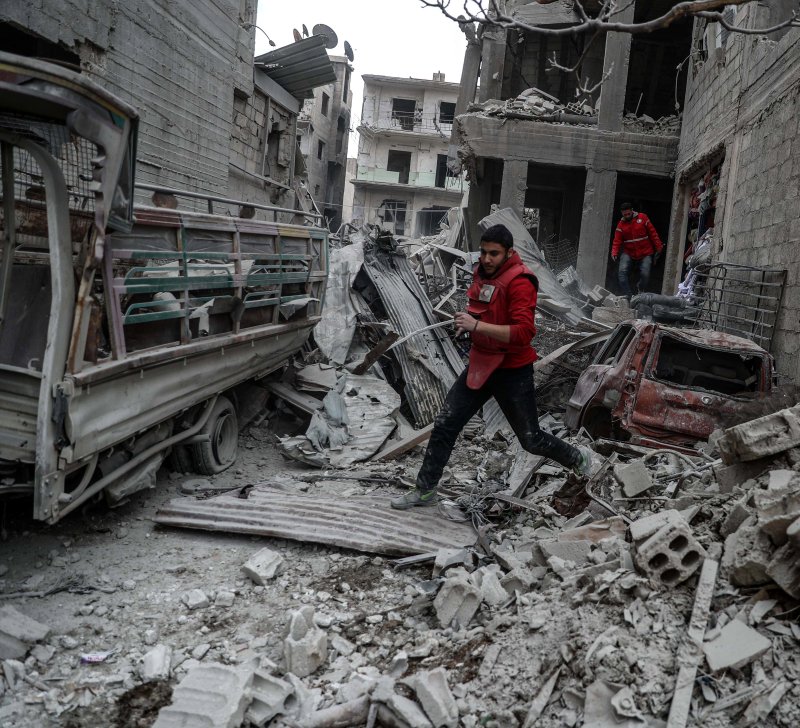A red crescent volunteer surveys ruins in Eastern Ghouta, Syria, after bombardment of the rebel-held area. File photo by Mohammed Badra/EPA
Feb. 23 (UPI) -- After being delayed by Russia, the United Nations Security Council is set to vote Friday on a 30-day cease-fire resolution for Syria to allow for humanitarian aid.
The resolution did not come up at a Security Council session on Thursday because of Russia proposing changes to the draft.
Russian Foreign Minister Sergei Lavrov said the draft resolution, which currently does not apply to the Islamic State group or the Nusra Front, must go further and exclude other groups who are "co-operating with them."
"We are ready to study the resolution that we were proposed to adopt, but we offered a very strict wording that would say that the cease-fire regime does not cover the Islamic State, Jabhat al-Nusra and the groups that support them and regularly shell the residential neighborhoods of Damascus," Lavrov said on Thursday.
It was unclear Thursday night whether a compromise was reached with Russia to avoid a veto by Moscow representatives.
Western diplomats suspect Russia is stalling for time -- giving Syrian government forces the opportunity to deliver a final blow to revel-held suburbs.
Thousands of civilians are trapped in the rebel-held area in eastern Ghouta under constant bombardment. The area, located near the Syrian capital of Damascus, has been under siege all week.
Sweden's U.N. ambassador, Olof Skoog, told the BBC that getting supplies and aid to the besieged Syrian areas is the primary objective.
"I think that without the pressure coming from a united Security Council things are not happening the way they should on the ground," Skoog said. "So I think for the council it's a little bit less about the details and more about giving a political pressure to ensure that this happens."
Britain's representative, Stephen Hickey, described the situation in eastern Ghouta, where more than 300 have died this week, as "hell on earth."















